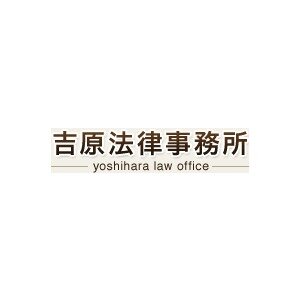Best Discrimination Lawyers in Japan
Share your needs with us, get contacted by law firms.
Free. Takes 2 min.
Or refine your search by selecting a city:
List of the best lawyers in Japan
About Discrimination Law in Japan
Discrimination in Japan, while not as overtly framed in legislation as in some Western countries, is addressed through various legal provisions and social policies. Japan emphasizes equality and non-discrimination in its Constitution, which guarantees equality before the law. However, issues such as race, gender, age, disability, and nationality continue to be areas where discriminatory practices are observed. Recent years have seen an increase in awareness and legal actions aimed at combating these issues, particularly in employment, housing, and public services.
Why You May Need a Lawyer
If you experience discrimination in Japan, seeking legal advice can be critical for several reasons. Common situations where legal help may be necessary include:
- Discriminatory employment practices, such as wrongful termination, pay disparity, or harassment based on race, gender, or nationality.
- Racial profiling or discrimination faced in housing or when accessing public services.
- Cases involving disability discrimination that contradict Japan's Act on the Elimination of Disability Discrimination.
- Gender discrimination or violation of gender equality rights in education or workplaces.
- Nationality-related discrimination or hate speech cases.
Local Laws Overview
Japan's legislation relevant to discrimination includes several key laws:
- The Japanese Constitution: Article 14 guarantees equality under the law and prohibits discrimination.
- Equal Employment Opportunity Law: Prohibits sex discrimination in employment and harassment.
- The Act on the Elimination of Disability Discrimination: Encourages reasonable accommodation for persons with disabilities.
- The Hate Speech Act: Aims to tackle hate speech and promote a tolerant society.
- Basic Act for Gender Equal Society: Promotes gender equality and supports women in the workforce.
Frequently Asked Questions
What types of discrimination are prevalent in Japan?
Prevalent types include racial, gender, disability, and nationality discrimination. There are also increasing concerns about discrimination against sexual minorities and foreigners.
How can I prove discrimination occurred?
Evidence may include documentation, witness statements, electronic communication, or historical patterns of behavior from the accused party or institution.
What should I do if I face discrimination at work?
Document incidents, gather evidence, report to your HR department or labor unions, and consider consulting a lawyer for legal action.
Is there a government body that deals with discrimination complaints?
The Ministry of Health, Labour and Welfare handles workplace discrimination, and the Ministry of Justice's Human Rights Bureau deals with other concerns.
How can I report a hate speech incident?
You can report hate speech to the local police or the Human Rights Bureau for further investigation and action.
Are there any protections for foreign workers against discrimination?
Yes, foreign workers are protected under Japanese labor laws, which prohibit discrimination based on nationality.
Does Japan have affirmative action policies?
Japan does not have affirmative action policies similar to those in some Western countries, but there are measures to promote gender equality and support diversity.
What recourse do I have if I face discrimination in housing?
Legal recourses are available through civil litigation and mediation services, often necessitating the help of a legal professional.
Is language a barrier in reporting discrimination?
Language can be a barrier, but many services offer multilingual support, and lawyers specializing in international cases can provide assistance.
Can I bring my case to equality commissions or councils?
Japan lacks dedicated equality commissions like those found in other countries, so legal or governmental body intervention may be necessary.
Additional Resources
For further help and support, consider these resources:
- Ministry of Justice's Human Rights Bureau: Offers guidance and addresses rights violations.
- Local Human Rights Bureaus: Provide regional support and mediation services.
- Non-Governmental Organizations (NGOs): Such as the Japan Network for Human Rights Legislation, which work against discrimination.
- Labour Unions: Assist with workplace discrimination issues.
Next Steps
If you need legal assistance regarding discrimination, consider these steps:
- Consult a Lawyer: Seek a legal professional experienced in discrimination cases in Japan to understand your rights and options.
- Gather Evidence: Collect relevant documentation, witness testimonies, and any other supporting information.
- Contact Relevant Authorities: Reach out to governmental bodies or local offices if necessary for referral to legal services or mediation.
- Explore Mediation Services: These can often resolve issues without a court case.
- Join Support Groups: Connecting with others who have faced similar issues can provide emotional and practical support.
Lawzana helps you find the best lawyers and law firms in Japan through a curated and pre-screened list of qualified legal professionals. Our platform offers rankings and detailed profiles of attorneys and law firms, allowing you to compare based on practice areas, including Discrimination, experience, and client feedback.
Each profile includes a description of the firm's areas of practice, client reviews, team members and partners, year of establishment, spoken languages, office locations, contact information, social media presence, and any published articles or resources. Most firms on our platform speak English and are experienced in both local and international legal matters.
Get a quote from top-rated law firms in Japan — quickly, securely, and without unnecessary hassle.
Disclaimer:
The information provided on this page is for general informational purposes only and does not constitute legal advice. While we strive to ensure the accuracy and relevance of the content, legal information may change over time, and interpretations of the law can vary. You should always consult with a qualified legal professional for advice specific to your situation.
We disclaim all liability for actions taken or not taken based on the content of this page. If you believe any information is incorrect or outdated, please contact us, and we will review and update it where appropriate.
Browse discrimination law firms by city in Japan
Refine your search by selecting a city.












